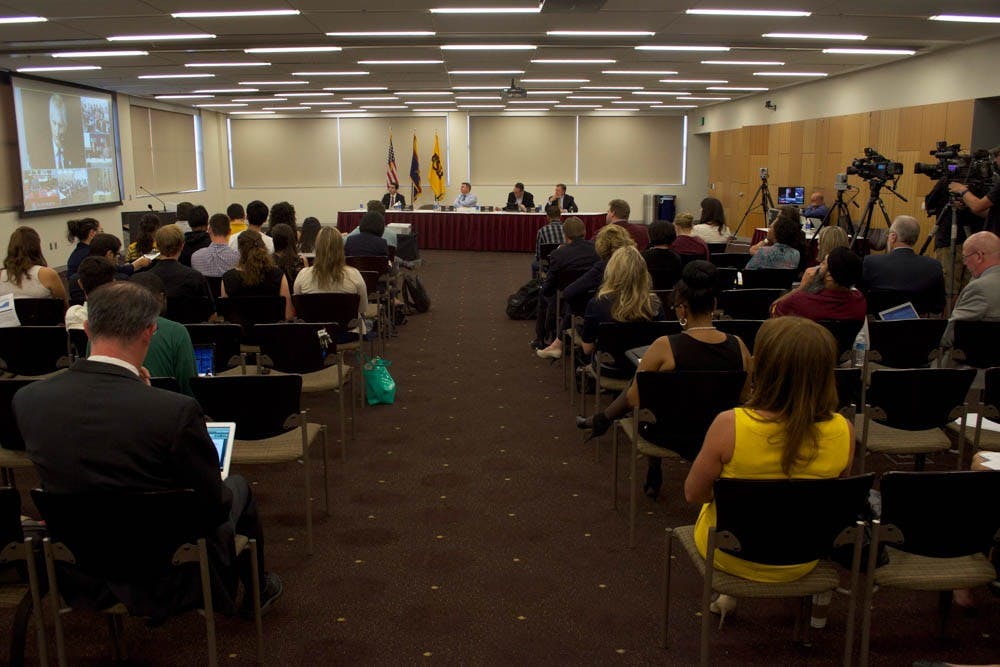When applying to ASU, Karina Dominguez, now a senior studying sustainability, said she was told "to go back to Mexico and apply as an international."
"People in higher education aren’t really educated about what it (means) to be undocumented," Dominguez said. "When you need to get help, a lot of people don’t know what to tell you and most of the time you’re the one explaining it to them."
She is one of the students who was made eligible for the Non-Resident Tuition Rate for Arizona High School Graduates by the Arizona Board of Regents on Aug. 22.
Previous policy qualified Deferred Action for Childhood Arrivals (DACA) students for this tuition rate. Since the suspension of the DACA program, ABOR Executive Director John Arnold said the policy language was amended to include all students who graduate from an Arizona high school.
"The board has always had a strong interest in providing access to our institutions for all Arizona students," Arnold said in reference to the policy revision. "We want to make clear that all students who graduate from an Arizona high school within the parameters of this policy are eligible for this nonsubsidized, non-resident rate."
According to an ASU representative, the University has about 367 students that are eligible for the 150% tuition rate for the fall 2019 semester.
Undocumented students are not the only ones eligible for the non-resident tuition rate. Other eligible students include those who joined the military after high school or who went on a religious mission and could not maintain Arizona residency.
Irasema Coronado, director of the School of Transborder Studies, said she thinks this was a good decision made by ABOR.
"If we're going to have young people without the benefit of proper documentation, and they want to get an education and they have graduated from a high school here ... we're all better off if they have an education," Coronado said.
ABOR Chair Larry E. Penley supported the measure and said when Generation X retires, it will be hard for the smaller Generation Z to make up for the loss in the labor force.
"We have a responsibility in this state to educate as many people as we can if we wish to have a labor force that can really address ... the potential loss of labor," Penley said during the session.
Reach the reporters at krquaran@asu.edu and tmlane3@asu.edu and follow @kiaraquaranta and @tmflane on Twitter.
Like The State Press on Facebook and follow @statepress on Twitter.




